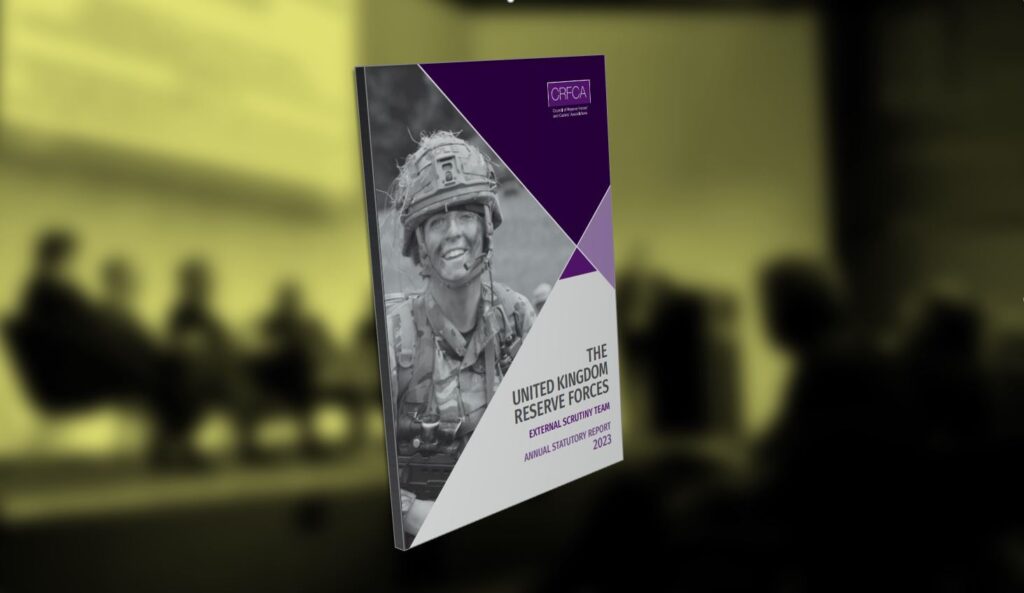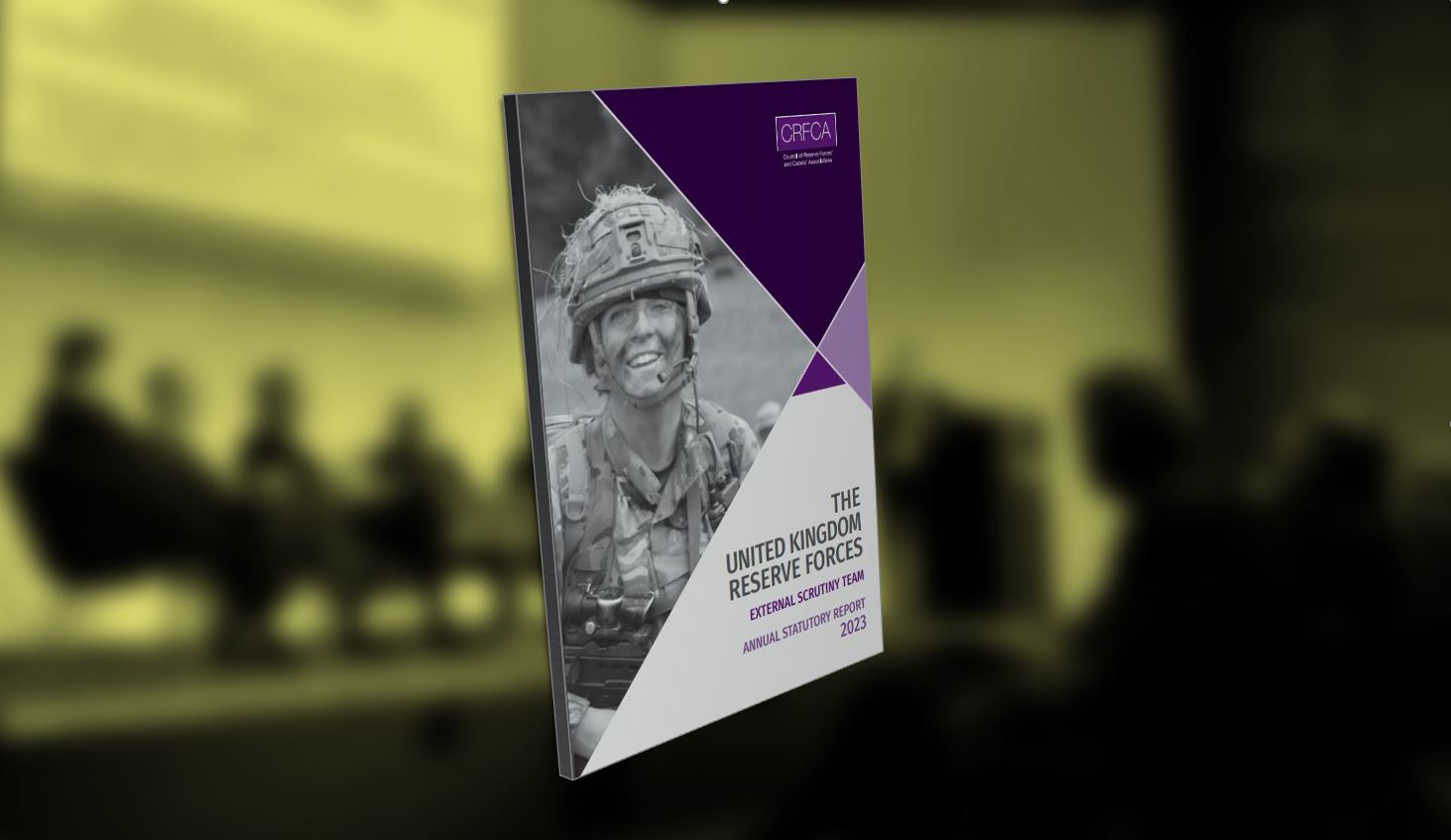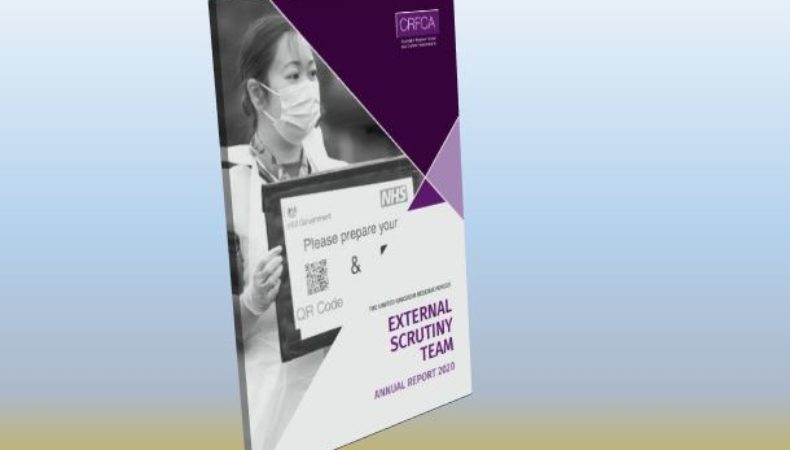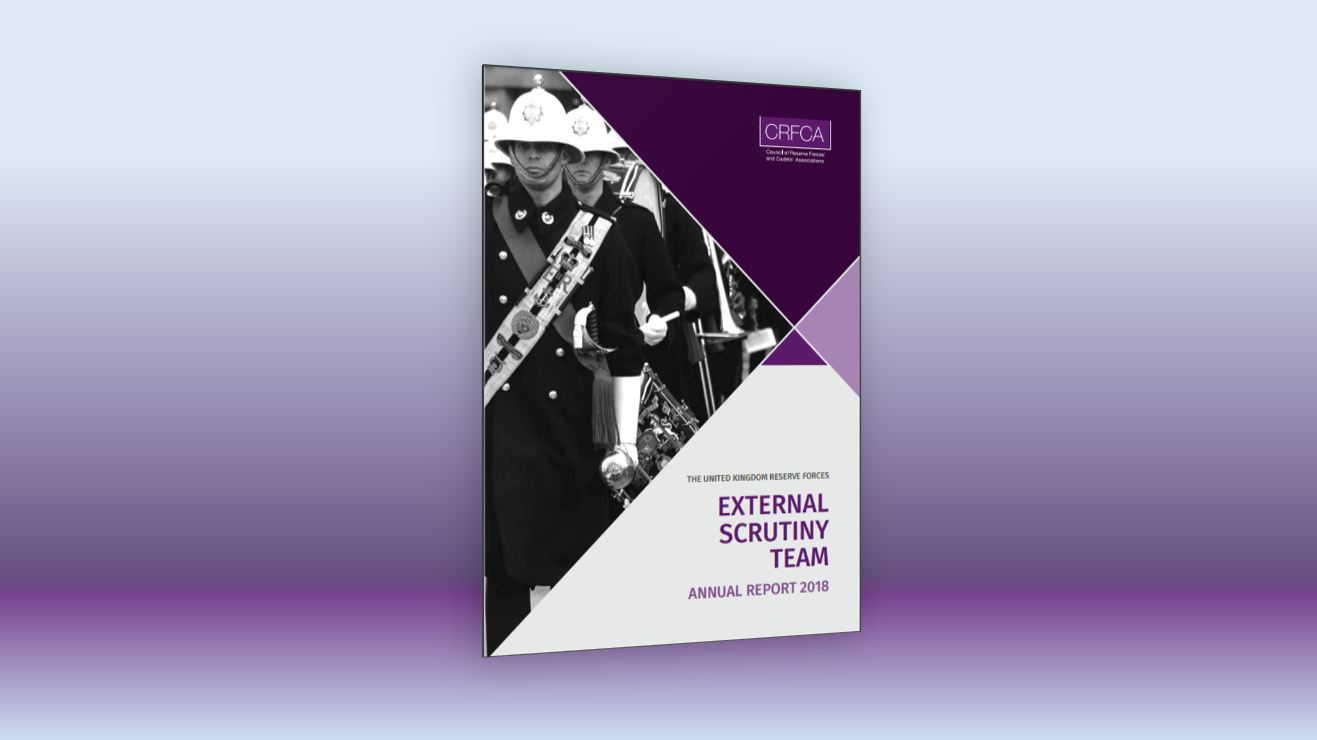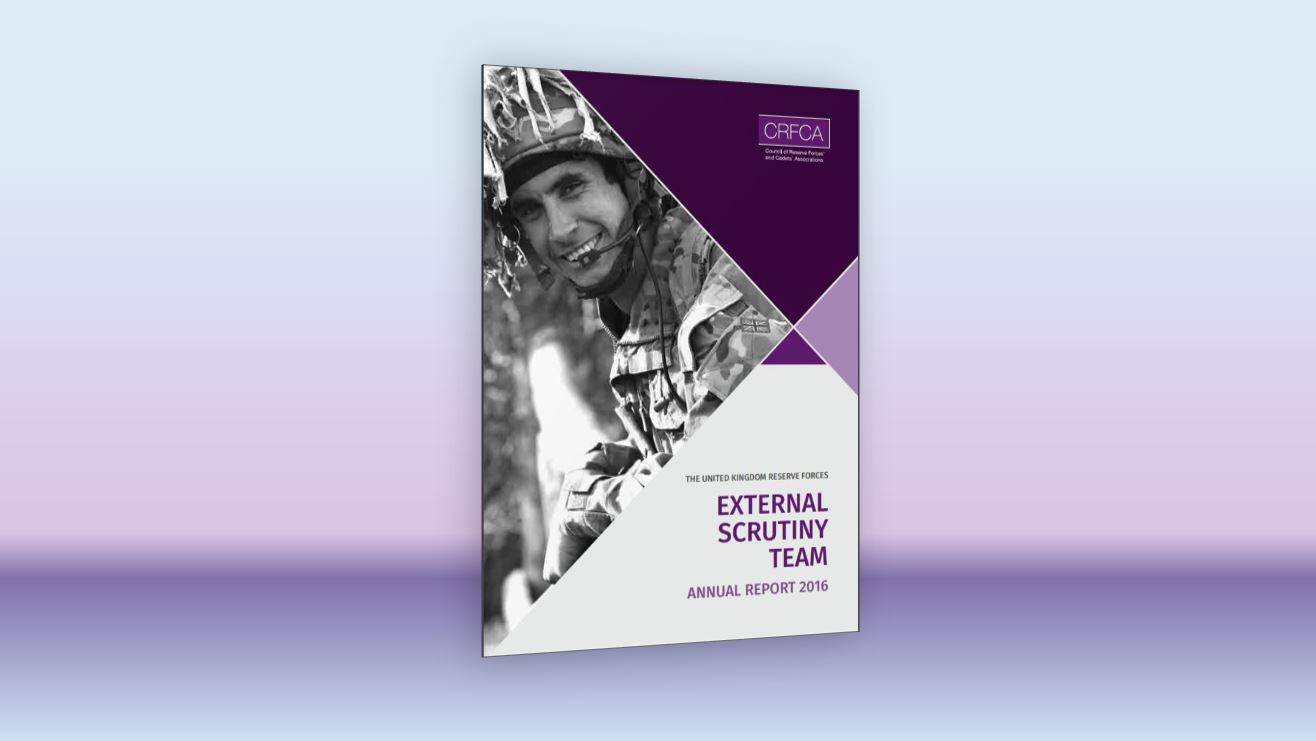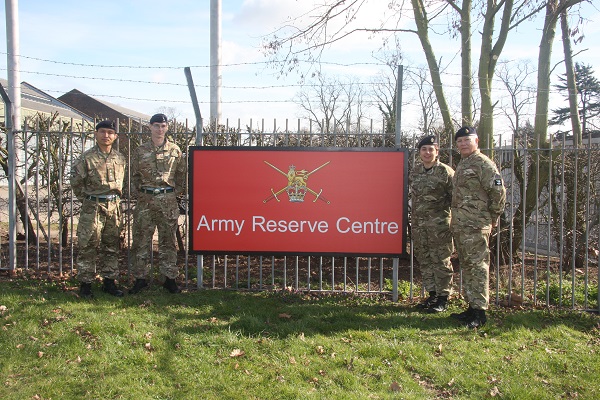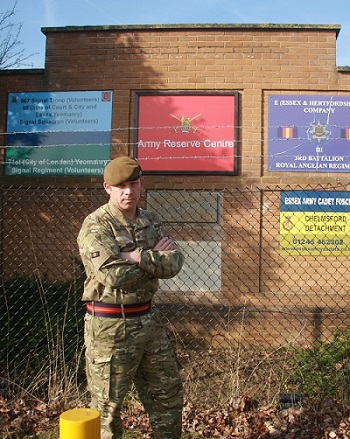The UK Reserve Forces External Scrutiny Team (EST) was established in 2013 to report on both the condition of the Reserve Forces and on the delivery of the FR20 programme, now RF30.
Significantly, the 2023 report summarised: “based on the metrics of recruitment, retention, provision of training and upkeep of land and buildings, we report that the state, or health, of the Reserve is poor and declining. ” (§9, p.10)
The RFCA 2023 External Scrutiny Team report includes an extract this year from the Reserve Forces Act 1996, re-iterating the RFCA’s duty to the Defence Council to provide a comprehensive assessment of the Reserve Forces, in order to address the External Scrutiny Team’s concern that the reports have not been formally responded to, while acknowledging “the pace of geopolitical change and the impact this is having on defence.” (§6, p.6)
The RFCA 2023 External Scrutiny Team highlights concerns about timely report submissions to Parliament, stressing the need for adherence to the Reserve Forces Act 1996.
The 2020 EST report, due to be published in July 2020, came out in March 2021. It was fundamentally positive, highlighting the Reserve Forces were being widely used and all three Services were developing their own Whole Force approach in a proactive and positive manner.
It took 10 months for the 2021 RFCA External Scrutiny Team report to be submitted, and it has still not been placed in the Parliamentary Libraries, despite numerous Parliamentary questions in both Houses requesting its publication.
The 2022 report is also not yet published. The EST Team submitted the 2022 Report to the SofS for Defence on 14 September 2022, due to a delay in receiving workforce statistics from the MOD. The report highlighted the unmitigated risk of a decline of the Reserve Forces size and effectiveness, driven by resource constraints and poor recruiting and retention.
The 2023 EST report has now been published on the CRFCA website and should become available in the Libraries of both Houses. A summary of they key recommendations, observations and insights is included below, and all RFCA members are encouraged to familiarise themselves with the full report in order to be as effective as possible in their RFCA county forums.
The RFCA 2023 External Scrutiny Team report stresses the urgency of addressing reserve recruitment and retention issues to mitigate risk to the reserve forces’ effectiveness and readiness.
The EST affirms that “a recruit and training system that takes an average of 20 months to prepare an applicant to undertake a part-time job cannot be said to be
efficient or effective.” (§19, p.14)
Their observations found that “mandatory Individual Training Requirement (ITR) takes up the majority if not all of the average service person’s annual Reserve Service Days allocation. This leaves little or no time for the training that enhances operational effectiveness of the Reserve for Defence, which also would be more exciting, challenging and rewarding for individuals, and thus aid recruitment and retention.” (§9c, p.10)
The EST report states: “The Army has set up a Reserve Executive Committee (REC) and early decisions are positive – the move away from ‘equivalence’ between regulars and reservists (more below), the Army Reserve no longer being the lead for UK resilience and an Army Reserve Bridging Strategy 2023-26.” (§10d, p.11)
The report expands on this idea of equivalence: “A reservist cannot be expected to be as capable as a regular when training on 28 RSDs. This has now been recognised formally by the Army. The result is that training programmes and courses can be designed to allow what can be accommodated in 28 days and,
once mobilised, subsequent continuation training to prepare a reservist for warfighting.” (§10e, p.11)
The report looked at applications numbers and conversion rates: They found that there were “20,000 to 30,000 expressions of interest a month; so, there is interest in a career in the Armed Forces. However, on average, of 100 applications, only 6 people are attested at the end of the recruiting pipeline, and the process, or time of flight, takes an average of 10 months; it takes a further 10 months to complete basic training.” (§17, p.13)
The report added: “the numbers getting through the pipeline are not improving, indeed getting worse as the conversion rate has increased from 12:1 to 14.4:1. ” The conversion rate is further hindered by the rigid application of medical entry standards. (§16, p.13) There were no comments or insights about employment models, future employment systems or flexible employment terms for reservists as there have been in previous years.
Another significant insight was highlighted in the report: “With the cost of fuel, it now costs some reservists more to travel to attend an evening’s training than is received through pay and Home to Duty allowance, particularly if they are from a national unit.” (§26a, p.17)
The report firmly commented: “if the Reserve continues to be undermanned, it will not be because there are insufficient men and women who are interested in military service, and this should not be cited as the case and used as an excuse.” (§36, p.20)
Observations on the reserve and cadet estate highlight infrastructure and funding challenges.
The RFCA 2023 External Scrutiny Team report stresses the urgency of addressing reserve recruitment and retention issues to mitigate risk to the reserve forces’ effectiveness and readiness report notes that “funding for maintenance has declined year on year and the Financial Year (FY) 23/24 funding bid to start the implementation of Tranche 2 of RFCA Estate Optimisation Programme (REOP) has failed, and will have to be re-bid for FY24/25. (§9b, p.10) For context, the report also notes: “The Volunteer Estate (VE) represents 68% of the number of Defence sites, but occupies only 5% in area and 3% of its running costs.” (§27, p.18)
“Given this bleak funding background and challenging operational environment, we congratulate the hard work of all the estates staff in the RFCAs to keep the Volunteer Estate open and functioning as best they can.” (§28, p.18)
The report conceded that costs to “optimise and improve the estate, which we support as we have previously reported that the VE is too large” were prohibitive though could be offset by the eventual sale of land assets. (§30, p.19)
Professor Gary Sheffield, RFCA External Scrutiny team member and Visiting Professor in the Defence Studies Department, King’s College London, has written
a short piece of historical context which is included in the report at Annex C, from page 26 :Expanding the Reserve Forces in Response to a Continental Threat: Some Parallels from History
All page numbers given are pdf page numbers, not the page number indicated on the document.

